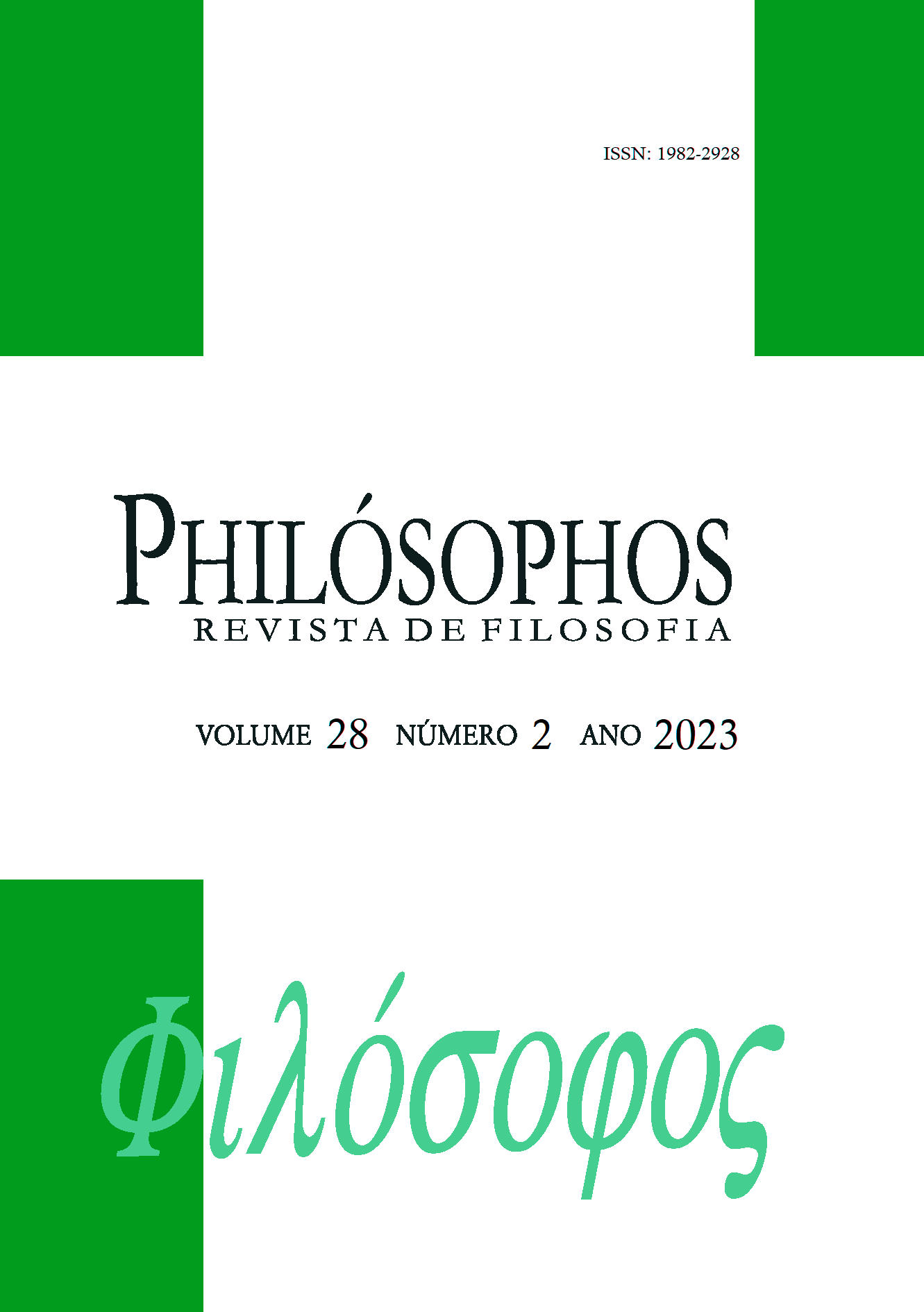Os Modelos de formação desejados e a variação da potência de agir em Espinosa
DOI:
https://doi.org/10.5216/phi.v28i2.77025Keywords:
Espinosa, Formação Humana, Potência, Conhecimento, Modelo.Abstract
In Ethics, IV, Preface, Spinoza states that “we desire to form an idea of man, as a model of human nature” (SPINOZA, 2008, p.267). In three sections, this work discusses the desire to achieve models of human formation, articulating the ontological, affective and gnosiological domains of Spinozism. The first presents Spinoza's ontology, according to which the human being is not an extraordinary being, but a finite vulnerable thing with a limited power to act. In the second, the kinds of knowledge are seen as ways of experiencing and understanding the world that interfere in the transformation of power and in the establishment of desired formative models. This topic addresses the relationship between desire and knowledge, in addition to the modes of fruition of power that follow from imagination, reason and intuition. The third discusses how inadequate knowledge leads to the formulation of models that lead to fixation and impotence. And that adequate knowledge does not agree with the imposition of a universal model supposedly extracted from reason and presented as necessarily good for everyone, but privileges the search for ratio, for proportion, more compatible with the needs of individuals and groups.
Downloads
Downloads
Published
How to Cite
Issue
Section
License
Copyright (c) 2023 Philósophos a journal of philosophy

This work is licensed under a Creative Commons Attribution-NonCommercial-NoDerivatives 4.0 International License.
Authors who publish in this journal agree to the following terms:
- Authors retain copyright and grant the journal right of first publication, with the work simultaneously licensed under a Creative Commons Attribution License that allows others to share the work with an acknowledgement of the work's authorship and initial publication in this journal.
- Authors are authorized to enter into separate, additional contractual arrangements for the non-exclusive distribution of the journal's published version of the work (e.g., publishing in an institutional repository or as a book chapter), with an acknowledgement of its authorship and initial publication in this journal.















